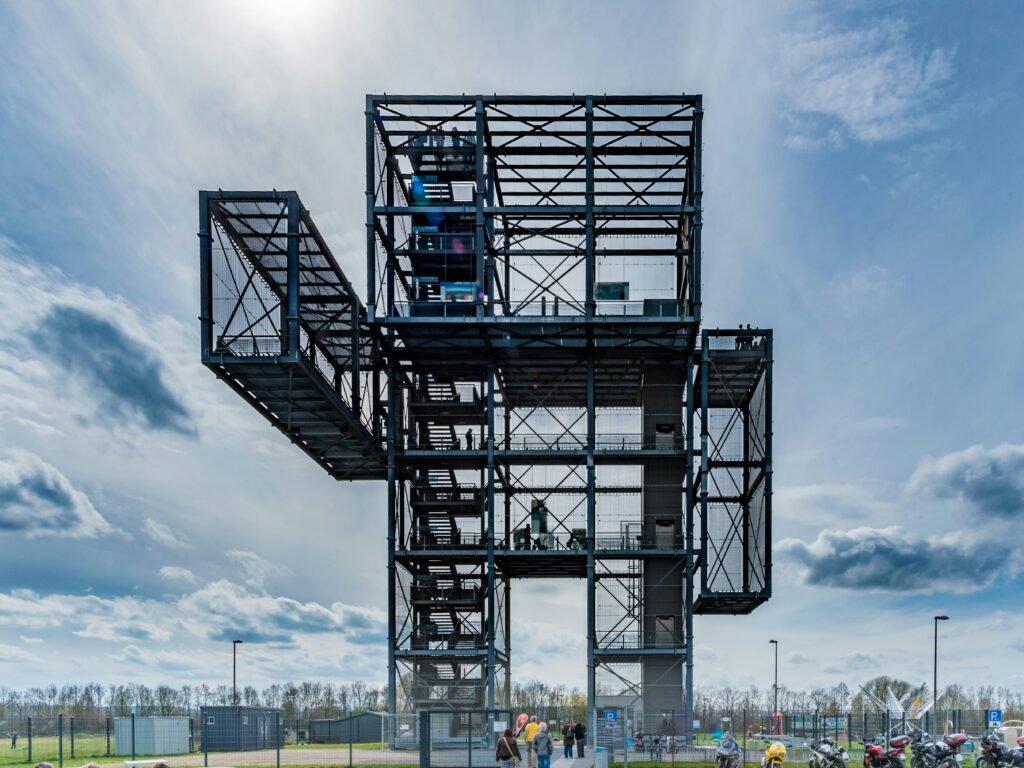Are you looking to navigate the financial landscape of Kenyan construction projects? Look no further! Budgeting and cost control are crucial aspects to consider. They play a vital role in ensuring the success and profitability of your project. Just like a well-orchestrated symphony, effective budget management and cost control can harmonize all the moving parts of your construction venture. However, navigating this terrain can be challenging. From fluctuating material prices to unforeseen delays, various obstacles can throw your budget off track. But fear not! By implementing proven strategies and adhering to best practices, you can stay on top of your project’s finances and achieve success. In this guide, we will explore the importance of budgeting, the challenges of cost control, and provide you with valuable insights to conquer the financial aspects of Kenyan construction projects.
Key Takeaways
- Accurate cost estimation is crucial for realistic budgeting and financial stability of construction projects in Kenya.
- Contractor selection and transparent procurement processes are essential to ensure quality and adherence to budget.
- Regular monitoring and tracking of expenses, along with contingency planning, are necessary for effective budget management.
- Factors such as project scope changes, fluctuations in material prices, and labor costs vary in different regions, impacting project costs in Kenya.

Importance of Budgeting in Kenyan Construction
Budgeting is a crucial first step in successfully managing your construction project in Kenya. It plays a vital role in ensuring the project’s financial stability and overall success. By accurately estimating costs and carefully planning your finances, you can effectively allocate resources and avoid unnecessary expenses.
Cost estimation is an essential aspect of budgeting in construction projects. It involves assessing the potential expenses associated with labor, materials, equipment, and other project requirements. Through accurate cost estimation, you can develop a realistic budget that aligns with your project goals and objectives.
Financial planning is another key element of effective budgeting. It involves creating a detailed plan for managing and allocating financial resources throughout the project’s lifecycle. By carefully analyzing cash flows, expenses, and revenue sources, you can make informed decisions about the allocation of funds, ensuring that the project remains within the set budget.
Budgeting allows you to maintain control over your project’s finances. It helps you identify potential risks and challenges early on, allowing you to implement strategies to mitigate them. By closely monitoring costs and comparing them to the budget, you can identify any discrepancies and take corrective actions promptly.
Challenges in Cost Control for Construction Projects
To effectively manage cost control in Kenyan construction projects, it is essential to address the challenges that arise in maintaining financial stability and minimizing expenses. One of the key challenges is contractor selection. Choosing the right contractor is crucial for successful cost control, as it directly affects the quality of work and adherence to budgetary constraints. However, in Kenya, there is often a lack of qualified contractors, which can lead to delays, cost overruns, and compromised construction standards.
Another challenge in cost control for construction projects in Kenya is procurement. The procurement process can be complex and time-consuming, making it difficult to obtain the necessary materials and services at competitive prices. Additionally, there may be issues with corruption and favoritism, further exacerbating the procurement challenges and hindering effective cost control.
In order to overcome these challenges, it is imperative to implement strategies for effective budget management. By employing rigorous contractor prequalification procedures and conducting thorough due diligence, the likelihood of selecting the right contractor for the project increases. Additionally, implementing transparent and efficient procurement processes, such as open tendering and competitive bidding, can help ensure fair pricing and minimize cost overruns.
Strategies for Effective Budget Management
Maximize your construction project’s financial stability and minimize expenses by implementing effective strategies for budget management. Proper budget management is crucial for the success of any construction project. Here are some strategies to help you manage your budget effectively:
- Accurate cost estimation: Conduct a comprehensive cost estimation process to ensure that all project costs are accounted for. This will help you avoid unexpected expenses and keep your budget on track.
- Resource allocation: Efficiently allocate resources such as labor, materials, and equipment to ensure optimal utilization and cost control. This will help you avoid overallocation and unnecessary expenses.
- Regular monitoring: Continuously monitor and track your project’s expenses to identify any deviations from the budget. This will allow you to take timely corrective actions and prevent cost overruns.
- Contingency planning: Include a contingency plan in your budget to account for unforeseen circumstances or changes in project scope. This will help you avoid financial setbacks and maintain project progress.
- Stakeholder communication: Maintain open and transparent communication with all project stakeholders, including contractors, suppliers, and clients. This will help you address any budget concerns or issues promptly and collaboratively.
Key Factors Affecting Project Costs in Kenya
Identify the key factors that impact project costs in Kenya. In the Kenyan construction industry, accurate cost estimation plays a critical role in determining project costs. The accuracy of cost estimation is influenced by various factors, including the project scope. A clear and well-defined project scope ensures that all the necessary activities and resources are accounted for in the cost estimation process. Changes or additions to the project scope can significantly impact project costs, leading to cost overruns and delays. Another factor that affects project costs in Kenya is the availability and cost of materials. Fluctuations in material prices can have a significant impact on the overall project budget. Additionally, the availability of materials can affect construction timelines, leading to delays and increased costs. Labor costs also play a crucial role in project costs. The availability of skilled labor and wage rates can vary in different regions of Kenya, impacting the overall project budget. Lastly, external factors such as government regulations, socio-political stability, and economic conditions can also affect project costs. It is essential for project managers and stakeholders to consider these key factors and incorporate them into their cost estimation and budgeting processes to ensure successful project outcomes.
Best Practices for Cost Control in Construction Projects
Implement effective cost control measures to ensure efficient budget management in your construction project. By implementing these best practices, you can minimize cost overruns and maximize project profitability. Here are five cost control techniques you should consider:
- Conduct thorough project cost estimation: Accurately estimate the costs associated with labor, materials, equipment, and any additional expenses to avoid underestimating the project budget.
- Regularly monitor and track expenses: Keep a close eye on all costs incurred throughout the project, ensuring that they align with the budget. This will help you identify any potential overruns early on and take corrective actions.
- Implement a change management process: Establish a structured process for managing changes to the scope of work, ensuring that any alterations are thoroughly assessed for their impact on the project budget.
- Foster effective communication and collaboration: Encourage open communication between project stakeholders to ensure that everyone is aligned on cost control objectives and actively working towards them.
- Continuously review and optimize project processes: Regularly assess the project’s processes and identify areas where cost savings can be achieved through streamlining, standardization, or automation.

Frequently Asked Questions
What Are the Current Trends in Budgeting and Cost Control for Construction Projects in Kenya?
To effectively manage budgeting and cost control in Kenyan construction projects, it is important to understand the current challenges and adopt best practices. This helps ensure efficient allocation of resources and successful project completion.
How Do Changes in Government Policies and Regulations Impact Budgeting and Cost Control in Kenyan Construction Projects?
Changes in government policies and regulations can have a significant impact on budgeting and cost control in Kenyan construction projects. Factors such as inflation and government corruption can affect project costs and require adjustments in budgeting and cost control strategies.
What Are Some Common Mistakes to Avoid in Budget Management and Cost Control in the Kenyan Construction Industry?
Common mistakes in budget management and cost control in Kenyan construction projects include not accurately estimating costs and failing to account for unforeseen expenses. It is crucial to avoid these errors for successful project completion.
What Are the Potential Consequences of Not Implementing Effective Budgeting and Cost Control Measures in Construction Projects in Kenya?
Not implementing effective budgeting and cost control measures in construction projects in Kenya can lead to significant consequences. Inadequate budgeting can result in financial instability, delays, and compromised quality. Cost control is crucial to ensure project success and profitability.
Are There Any Specific Technologies or Software Solutions That Are Recommended for Effective Budget Management and Cost Control in Kenyan Construction Projects?
To effectively manage your budget and control costs in Kenyan construction projects, consider using construction software and budgeting tools. These technologies can provide you with the necessary tools and information to make informed financial decisions.
Conclusion
In conclusion, effective budgeting and cost control are crucial for the success of construction projects in Kenya. By implementing strategies for budget management and considering key factors affecting project costs, stakeholders can ensure that projects are completed within budget. It is essential to adopt best practices for cost control to overcome the challenges faced in the construction industry. Overall, prioritizing budgeting and cost control contributes to the overall efficiency and profitability of construction projects in Kenya.